Israel says suspected Iranian hackers targeted actors in phishing attack
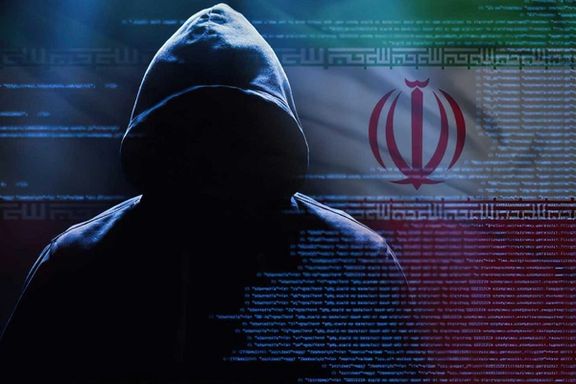
Dozens of Israeli actors were targeted in a phishing attack believed to have originated from Iran, Israel's National Cyber Directorate said on Friday.

Dozens of Israeli actors were targeted in a phishing attack believed to have originated from Iran, Israel's National Cyber Directorate said on Friday.
The Directorate said attackers hacked into an email account and posed as organizers of auditions for a new film by a well-known director. The emails asked for audition videos and personal details, including scans of ID cards, passports and home addresses.
According to the statement, dozens of actors provided the material and later received threatening messages attributing the operation to groups linked to Iran, in what officials described as an attempt to apply psychological pressure.
Israeli media, including Ynet, reported that one phishing email presented itself as an audition request for a project by filmmaker Ari Folman about the Oct. 7 Hamas attack on Israel. It asked applicants to record a personal video and submit supporting documents.
Broader Iranian cyber activity
The phishing campaign is the latest in a series of operations Israel and Western experts have tied to Iranian hackers. In June, following Israeli and US strikes on Iranian nuclear targets, security officials warned of potential retaliation in cyberspace.
But researchers told Reuters at the time that Iran’s hacking capability often appeared overstated. “The volume of attacks appears to be relatively low,” said Nicole Fishbein, a researcher at Israeli firm Intezer. “The techniques used are not particularly sophisticated.”
Some Iran-linked groups such as Handala Hack have boasted of breaching Israeli and Western companies, though analysts said their impact was modest. Israeli cybersecurity company Check Point said Iran’s Revolutionary Guard had used phishing to target Israeli journalists and academics, and in one case tried to lure a victim to a physical meeting in Tel Aviv.
Analysts compared the pattern to Iran’s missile program: a large volume of fire but limited strategic effect. “There is a lot of hot air, there is a lot of indiscriminate civilian targeting, and realistically there are not that many results,” said Yelisey Bohuslavskiy, cofounder of intelligence firm Red Sense.
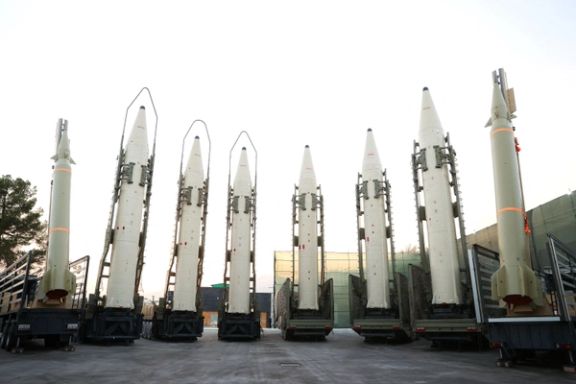
An Iranian lawmaker suggested on Thursday that Qatar expel US forces and allow Iran’s Revolutionary Guards to deploy missiles on its territory to counter Israel.
“I propose that the US army, accomplice of Israel, be expelled from Qatar, and that the Revolutionary Guard aerospace force deploy Fattah hypersonic missiles on your soil to defend your sovereignty,” Addressing Emir Sheikh Tamim bin Hamad Al Thani, Mojtaba Zarei wrote on X.
In a separate post, Zarei wrote: “The respected emir of Qatar should request support from the Revolutionary Guard aerospace force to station in Qatar.”
Iran accuses US of complicity
His remarks followed an Israeli strike in Doha this week that killed a Qatari security officer and several Hamas members. Iran’s military said the attack could not have happened without US support. “The US government is complicit in these crimes,” the armed forces said on Wednesday, accusing Washington of backing “the Zionist regime’s crimes.”
US President Donald Trump said Israel acted on its own and Prime Minister Benjamin Netanyahu said Israel “takes full responsibility.”
Tehran seizes on regional anger
Iranian leaders condemned the attack as a violation of Qatari sovereignty. President Masoud Pezeshkian called it “illegal, inhumane and anti-peace,” while national security chief Ali Larijani wrote in Arabic: “O countries of the region! Prepare yourselves for my upcoming dominance.”
Hardline activists in Tehran described the strike as a “lesson” for US allies. Commentator Reza Ghobeishavi said on X that it “benefits Iran’s camp and Israel’s opponents, while harming the camp that supports normalizing relations with Israel.”
Qatar-Iran relations
Qatar hosts the US Al Udeid Air Base, the largest American facility in the Middle East. While Iranian officials have voiced strong support for Qatar since the Israeli strike, Tehran itself targeted Al Udeid in June during its confrontation with the United States. Iran said at the time that Doha had been notified in advance, while Qatar condemned the attack but said it wanted to avoid escalation.
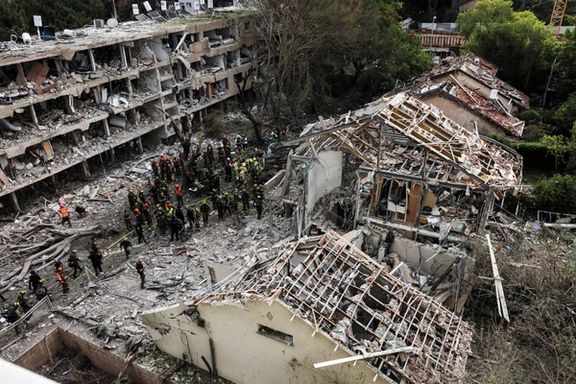
Israel’s comptroller published a report on Wednesday outlining a series of government shortcomings in responding to civilian needs during the 12-day war with Iran and called for fixing gaps in emergency response.
The report was compiled from hotline data, evacuation shelters and field inspections at sites hit by Iranian missiles.
Israel launched a surprise military campaign against Iran on June 13, targeting senior military and nuclear officials as well as sensitive nuclear and military facilities.
Iran responded with drone and ballistic missile strikes on Israel. During the conflict, Iranian missiles hit 50 sites in Israel, including 28 civilian locations, five military facilities, three energy infrastructure sites and one university.
Among the civilian sites identified were in the towns of Bat Yam, Ramat Gan and Be’er Sheva. No specific details were provided regarding the military or infrastructure targets.
According to the report, the shortcomings were divided into two categories: those directly under attack and the wider public affected by the aftermath, the Times of Israel reported Thursday.
A key finding was that Israel lacks a single national authority to coordinate government responses for citizens during emergencies.
During the war, Israel declared a state of emergency. Public services — including schools, civilian air travel and public events — were shut down, which the report said caused economic hardship and disrupted daily life.
State Comptroller Matanyahu Englman made several recommendations for the government, including raising preparedness levels, establishing clearer national coordination and improving support for displaced residents, particularly in cases of relocation or temporary housing.
Over the course of the 12-day conflict, 31 civilians and one off-duty soldier were killed in Israel. Around 11,000 residents were evacuated to hotels and guesthouses nationwide.
Israel’s strikes on Iran resulted in the deaths of 1,062 people, including 276 civilians.
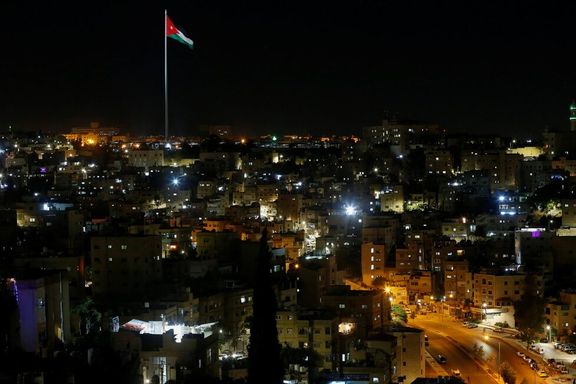
The threat from Iran and its regional allies has sharply increased in recent year, senior officials in Jordan told Iran International, in a setback to decades of stability in the Western-allied kingdom.
“Iran's threatening activities, finance and recruitment, has tripled for the last three years to the extent that there have been people in security associated with Iran who have been accused of spying for Iran," a security source told Iran International on condition of anonymity.
"For Iran, creating something in Jordan is important -- even if on a small scale.”
The source added that even after the official crackdowns earlier this year after a widely publicized raid uncovered a weapons cache initially attributed to the Muslim Brotherhood - a longtime political party in Jordan which was then banned.
Jordan at the time said it had arrested 16 people accused of manufacturing short-range missiles, possessing explosives and automatic weapons, concealing a ready-to-use missile and illegally recruiting and training militants.
Banned Brothers
The Muslim Brotherhood is a century-old pan-Arab movement opposed to Western influence and the erosion of religiosity in public life.
In Jordan its members have long held a significant influence in parliament and public life while its offshoot in the Israeli-occupied Palestinian territories is the Iran-backed armed group and political party Hamas.
“Hamas and Hezbollah were involved for money and training in Beirut,” the security source said. “Those training them were Palestinians from Hamas while Hezbollah facilitated the sites and expertise.”
“Iran wanted to created a front in Jordan as a backup to losing south Lebanon, before that happened last year,” the source added, referring to the weakening of Hezbollah following a punishing military campaign against the group last year.
'Iran influence on rise'
“It’s not a secret that the negative influence of Iran is still on the rise,” said another security source, saying that Jordanian citizens also perceive an increased threat.
“Public opinion in Jordan shows that the main threat to Jordanian national security 20-30 years ago was Israel but today it is Iran, and has been for the last 5-6 years,” he said.
In April last year, following an Israeli strike on Iran’s consulate in Damascus, the security head of the Iran-backed Iraqi militia Kata'ib Hezbollah. Abu Ali al-Askari said the group was "prepared to arm the Islamic Resistance in Jordan" with supplies for up to 12,000 fighters.
Their goal, he said, was to "defend the Palestinians and avenge the honor of Muslims" by targeting Israel, saying the group would start by "cutting off the land route that reaches the Zionist entity," referring to the Jordan-Israel border.
The perceived threat has seen Israel enhance its border security with Jordan in addition to carrying out a surprise drill for its forces in August, simulating a ground invasion from the Jordanian border.
“Weapons from Iran have also continued to be smuggled into Jordan and on to the West Bank from Syria," the security source added.
Friend of my enemy
Tehran continues to defy Amman, which it sees as an ally of Iran’s arch-enemies the United States and Israel, and a senior Jordanian official said protests through diplomatic channels have proven futile.
“We told them (Iran) they cannot fly their missiles over Jordan, but they did anyway,” the official said.
“They (Iran) don’t listen. We said they can fly over Syria, but they are adamant and have little regard for the consequences. This is a country that thinks they should be the masters of the Middle East.”
While the official said that Iran had lost influence in the region after military setbacks to its regional armed allies and a June war with Israel and the United States, the threat to Jordan abides.
“The desire and will is there to focus on Jordan because they lost cards with Hezbollah and Syria, but their ability has somewhat weakened. On the borders with Syria they’d love to do more damage but they lost a lot of their operatives there and Syria isn’t friendly to them.”
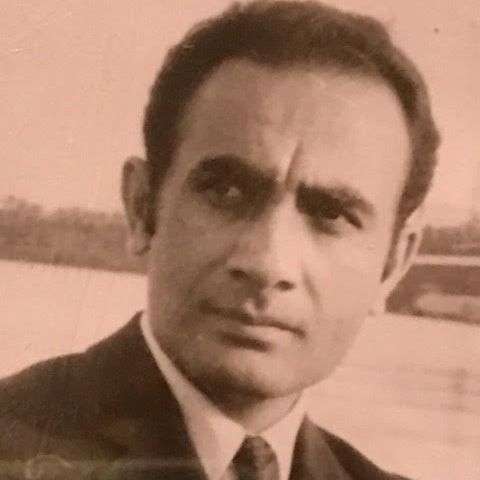
A onetime Iranian security chief whom a lawsuit accuses of torturing anti-Shah dissidents transferred more than $20 million abroad before fleeing to the United States in 1978, the Guardian reported on Thursday citing leaked diplomatic documents.
Parviz Sabeti later westernized his and his wife’s names to Peter and Nancy after settling in Florida, the report said. The lawsuit against him by three plaintiffs describing themselves as former political prisoners seeks $225 million in damages.
Using those aliases, Sabeti established a successful real estate development company in central Florida, while he, his wife and their two daughters were listed as directors of several active firms, the report said.
The family own at least eight properties in Orange County, including a $3.5m mansion in a community called Windermere purchased in 2005, it added
Sabeti served as a top official in Iran's secret police, SAVAK, from 1973 to 1978. He resurfaced publicly during Iran’s widespread 2022 protests after decades out of view.
The report comes after a US district court in Florida rejected multiple motions by Sabeti to dismiss the case last month.
Sara Colón, an attorney for the plaintiffs, welcomed the Florida court’s rejection of Sabeti’s dismissal motions and its order to preserve her clients’ anonymity, telling the Guardian the ruling was a “positive result for survivors of torture who are seeking accountability and justice.”
Colón added that plaintiffs had been subjected to death threats and intimidation since filing the lawsuit.
An advocacy group for victims of torture and their families, The Iranian Collective for Justice & Accountability, said it hoped the Sabeti case would help end a “cycle of violence.”
“All victims deserve justice, and everyone engaged in torture and repression should be held accountable,” the Guardian quoted a spokesperson for the group as saying.

As the third anniversary of Mahsa Jina Amini’s death in Iranian morality police custody approaches, activist Mercedeh Shahinkar says only a mass uprising, not dialogue nor piecemeal reform, can win genuine change.
Amini died under circumstances which remain unexplained shortly after her arrest on Sept. 16, 2022, sparking a wave of protests nationwide dubbed the Woman, Life, Freedom movement which was ultimately quashed with deadly force.
Shahinkar and her mother joined a Tehran protest on Oct. 15, in which security forces shot her in the face with non-lethal munitions, leaving her blind in one eye.
Now living in exile in the United States, she believes the movement has moved far beyond opposition to the hijab mandated by Tehran's theocracy toward demanding the total downfall of the ruling system.
“Our youth were not killed and people like me were not blinded — many in one eye, many in both eyes, many raped and tortured in prisons — just to settle for superficial reforms,” Shahinkar told Iran International.

Her comments come as tensions fester inside Iran. According to Iran Human Rights, authorities executed Mehran Bahramian, a protester arrested during the 2022 demonstrations, just weeks before the anniversary.
Repression continued
Thousands of people in Iran face the risk of execution amid what Amnesty International on Wednesday called a deepening execution crisis.
The rights group said more than 800 people had been executed in 2025 so far, nearly double the pace of last year, and warned that dozens of other detainees linked to the protests remain at imminent risk of execution following what it describes as unfair trials and forced confessions.
Shahinkar says families of those killed or arrested during the unrest with whom she remains in touch tell her about renewed harassment, saying they have received summonses by security services to discourage public commemorations.
The protests, Shahinkar said, sparked visible social change but she believes the state allows it as a form of controlled freedom.
'We want evil rule gone'
A top Tehran decision-making body in May ordered the parliament not to enforce a contentious law mandating stricter hijab regulations.
“We see women singing in the streets, people taking relative freedoms. But they allow a bit of space only to avoid triggering another protest, Shahinkar said.
"We don’t want small freedoms meant to silence people. We want the Islamic Republic gone — its evil removed from our country."
Iranian-American psychotherapist Azadeh Afsahi, who works with survivors of torture through her nonprofit Iran House, says she hears this same shift from many Iranians she counsels.
“The definition of justice is not available when we talk with survivors, because we don’t know when they will see accountability. But what stands out is their willingness to fight, even after everything," Afsahi told Iran International.
Shahinkar insists that only mass resistance will make a difference.
“The Islamic Republic won’t fall through kindness or dancing. It takes anger and massive numbers in the streets — more than 50% of society, not just 20 or 30.”
Struggle goes on
Despite the risks, she says fear no longer holds her back.
“At first, I was terrified when I saw security forces. But over time, the fear disappeared… Even with one eye, we can celebrate freedom.”
The anniversary of Amini’s death is being marked by vigils and demonstrations abroad, while inside Iran, rights groups say authorities have tightened restrictions on gatherings. The United States and several European countries have issued statements honoring Amini’s memory and calling for accountability.
For Shahinkar, however, symbolic gestures abroad are not enough; she maintains that the future depends on Iranians themselves realizing their strength and carrying the struggle beyond hijab into a demand for systemic change.
